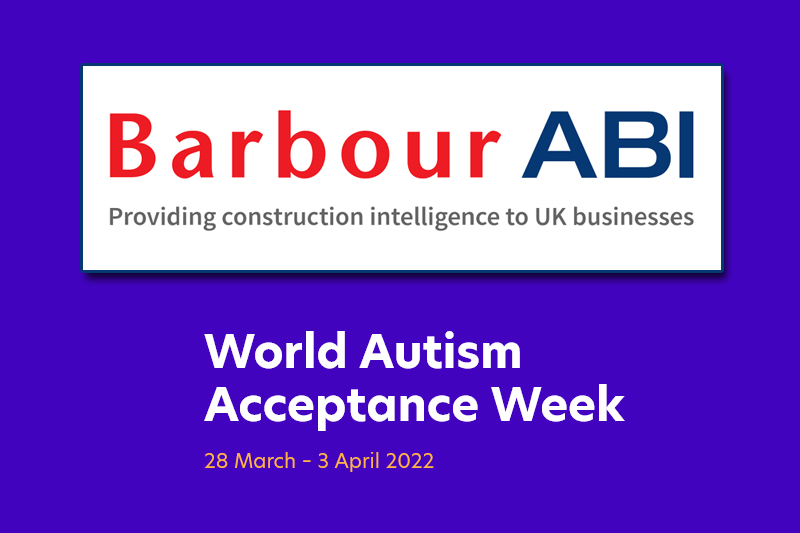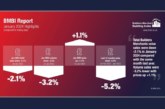
To raise awareness during National Autism Acceptance Week, construction intelligence provider Barbour ABI has aimed to shine a light on the condition and what businesses can do to harness the unique skills autistic people can bring to the workplace.
Lucy Hilary is one of Barbour ABI’s top researchers and she has autism. She is very keen to spread awareness and acceptance of autism, and has led the company’s week of events to highlight the condition.
Despite being very sociable and outgoing Lucy finds noise, crowded spaces, and small talk difficult and this has been a barrier to her succeeding in workplaces in the past. Lucy explained: “I was being treated like a child and not being listened to. The thing with working in an office was I had a massive issue with the noise of typing on a keyboard. It would paralyse me and invoke internalised rage that I would have to manage to appear calm on the outside but on the inside, I was exploding.”
Lucy did extremely well at school and university but was told by one employer that she wouldn’t be suitable for their graduate trainee programme, despite having a degree.
She continued: “I had big ambitions; I wanted to be a manager and do well and be successful. Throughout my 20s I realised this was never going to happen for me and by the end of my 20s I had stopped applying for higher paid positions with more responsibility because I had always been told I wasn’t good enough.”
Things changed for Lucy when she started to work at Barbour ABI – her first role where she had an official diagnosis of autism, and was able to ask for reasonable adjustments. Lockdowns during COVID increased anxiety for Lucy about returning to working in an office, but her manager, the HR team and senior leadership at Barbour ABI took the time to try to understand her condition and what she needed to flourish in her role.
“It was decided I would create my own timetable on returning to work and it wasn’t as bad as I thought. There was also no pressure to keep to the timetable. It gave me a sense of control,” said Lucy. “I was sat in the corner by the window but still on a bank of researchers, so I felt part of the team and I was facing the door and allowed to use my own headphones.
“With this newfound support I am now the top researcher in the department and am often asked for input on different elements of the job to see my take on it. Sometimes I will be asked to look at projects to see if I can find out new information because I have a knack at looking at something and knowing if something isn’t quite right or finding out something new to point us in a better direction.”
Jamie Cullen, Head of Research at Barbour ABI, said: “Lucy is a fantastic and valued member of the team. By listening to her and trying to understand her needs we were able to make a number of very minor adjustments from our side that made the world of difference to her. She is now thriving, and we are able to benefit from her unique insights that come from a slightly different way of looking at things. If we didn’t support Lucy properly those insights would be lost, and the company and our clients would be worse off.”
Lucy added: “I can’t be cured, nor would I want to be. Autism is not a disability; it is the wrong environment. If you took away my noise cancelling headphones, made me sit in the middle of people and treated me like everyone else, I would not be able to succeed in my job.”
Lucy has written a very personal blog on her experiences of autism, which can be read here.









